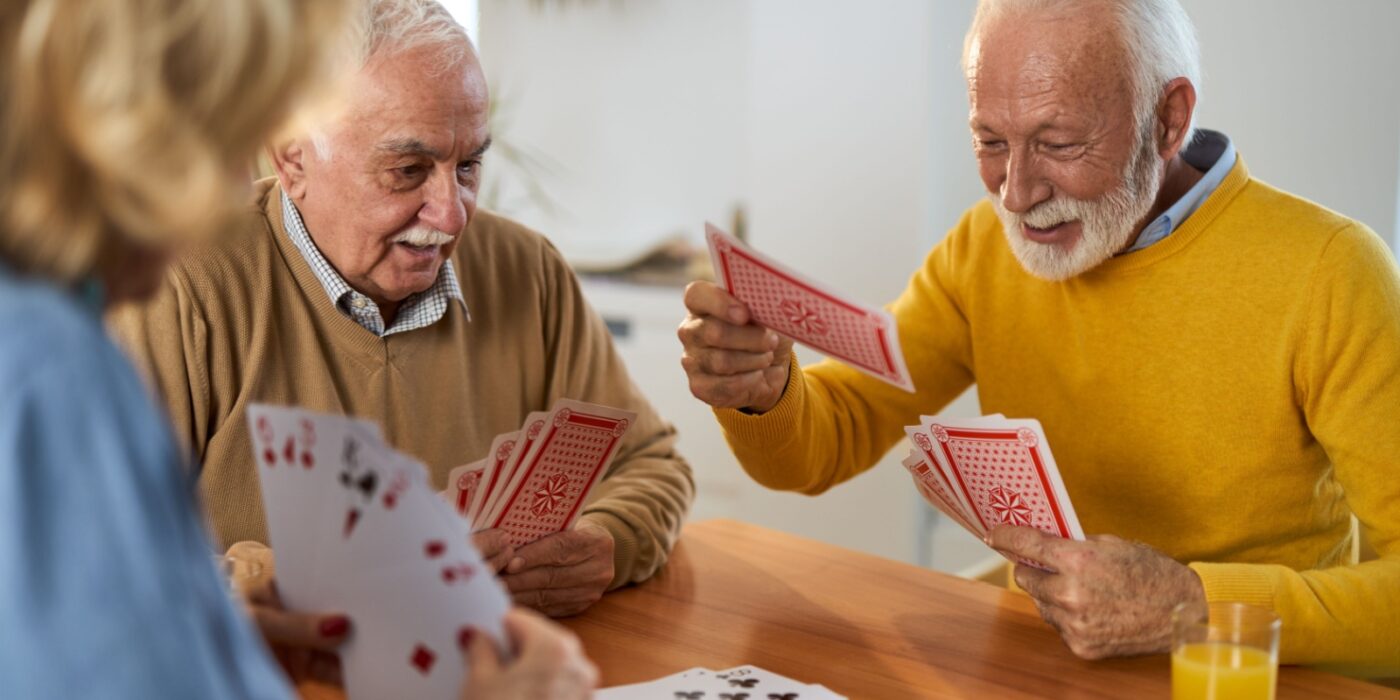Seniors with dementia may face challenges in daily life, but moments of joy and connection are still possible. Activities like puzzles and trivia games provide more than entertainment—they offer cognitive stimulation, social interaction, and a sense of accomplishment.
Finding a community that fosters warmth and support helps create comfort, familiarity, and meaningful engagement. Whether playing a game with family, a caregiver, or a fellow resident, these moments can spark memories, laughter, and a sense of fulfillment.
The Power of Puzzles for Cognitive Stimulation
Puzzles provide a wonderful way to engage the brain while offering a calm, enjoyable activity that doesn’t feel overwhelming. Jigsaw puzzles, in particular, can promote concentration, problem-solving skills, and hand-eye coordination.
The process of searching for pieces and fitting them together activates different areas of the brain, which can help strengthen neural pathways.
Word Puzzles and Language Skills
Crossword puzzles and word searches also offer cognitive benefits, encouraging pattern recognition and recall. Studies suggest that working on word puzzles may contribute to a slower cognitive decline in individuals with early-stage dementia. These games encourage memory recall, which can be beneficial in maintaining language skills.
Whether it’s a large-piece jigsaw puzzle designed for easier handling or a simple word search, puzzles provide a relaxed and rewarding activity that seniors can enjoy alone or with others.
Trivia Games Bring Back Memories
Trivia games can bring back fond memories, giving seniors a chance to reminisce and share stories. Simple board games or question-and-answer card decks make it easy to enjoy in any setting. These prompts may spark memories that might otherwise stay tucked away.
Playing trivia in a group also strengthens social connections. Family members or caregivers can ask questions that lead to laughter, conversation, and storytelling. Even if the answers don’t come right away, the joy of reminiscing together is what matters most.

Card Games for a Fun Challenge
Card games like Go Fish, Uno, and Solitaire offer a fun and familiar way to engage cognitive skills. Simple games help with recognition, sequencing, and decision-making, while those with more structure, like Bridge or Rummy, add a touch of strategy.
Beyond the mental benefits, gathering around a game with friends or family fosters connection. These moments help ease feelings of isolation, making time spent together even more meaningful and enjoyable.
Making Card Games Accessible for Seniors
Studies have suggested that playing card games may correlate with better cognitive function in older adults. The act of shuffling, sorting, and strategizing provides a mental workout, while the social aspect of playing with others encourages conversation and connection.
For seniors in memory care, using decks with larger numbers and symbols can make gameplay more accessible, allowing them to focus on the fun rather than frustration.
Board Games & Strategic Thinking
Board games provide structure and familiarity, making them a great option for seniors with dementia. Games like Monopoly, Scrabble and Checkers can encourage strategic thinking and recall. These games often involve turn-taking and decision-making, offering a structured way to engage with others in a shared experience.
Enjoying Board Games with Dementia
Playing board games together in a cozy, welcoming environment can create opportunities for laughter and interaction. For seniors who may struggle with more complex rules, simplified versions of classic board games can be a great alternative.
The goal is to make the experience enjoyable and engaging, allowing seniors with dementia to participate at their comfort level.
Dice games bring fun and connection
Dice games like Yahtzee or Bar Dice rely on a combination of luck and basic decision-making, making them accessible for a variety of cognitive levels. Rolling dice, counting scores, and recognizing patterns provide a subtle mental challenge that keeps the brain engaged without requiring extensive memory recall.
The Social Element of Dice Games
A study on the Chinese game Mahjong found that playing dice-based games regularly could be linked to improved cognitive function in older adults. The unpredictability of each roll keeps the game exciting, while the structured format provides familiarity.
Whether played with a caregiver, a fellow resident, or family members, dice games offer an easy, low-pressure way to enjoy time together while engaging the mind.
Meaningful Play for Seniors with Dementia
Incorporating puzzles and trivia games into daily life can provide much more than cognitive benefits—it fosters joy, connection, and a sense of purpose. While dementia can present challenges, engaging in familiar activities in a supportive environment helps maintain a sense of identity and independence.
Designed for Comfort & Connection
At NorBella in Champlin, we believe in the power of simple joys and meaningful connections. Whether it’s a quiet moment with a jigsaw puzzle or a lively round of trivia with loved ones, these experiences bring warmth and enrichment to each day.
Schedule a visit today. With compassionate care and thoughtful engagement, we create opportunities for seniors to connect, reminisce, and cherish the moments that matter most.

